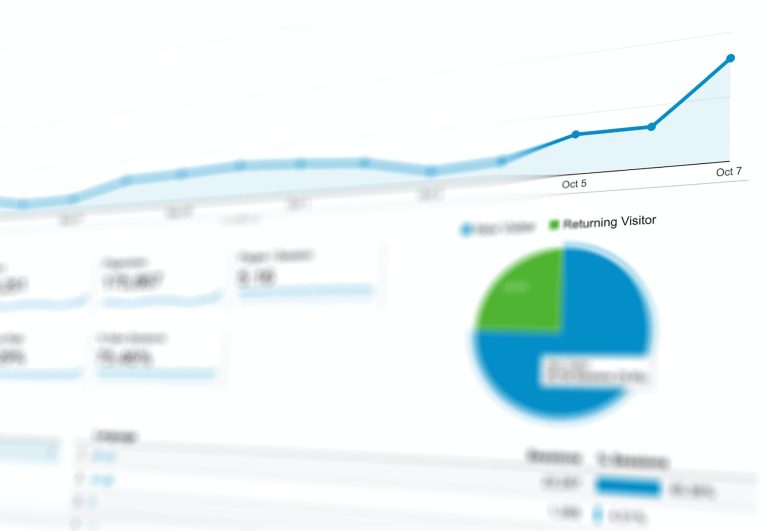Marketing: Why Your Decisions Should Be Driven by Reliable Data
In today’s competitive digital landscape, relying solely on intuition or gut feelings to make marketing decisions is a risky gamble. This approach often leads to wasted budgets, ineffective campaigns, and missed opportunities. The businesses achieving sustainable growth today are those that have embraced a data-driven marketing culture.
Now more than ever, success lies in adopting a data-based digital strategy. The difference between data-driven marketing and intuition-based marketing highlights the need to shift from guesswork to analytics. Relying on reliable data isn’t optional anymore—it’s essential for guiding your actions, optimizing investments, and driving continuous improvement in results.
The Importance of Reliable Data in Marketing Decisions

While intuition has its place, it’s no longer enough to navigate the complex customer journeys of today. Data provides a tangible view of your users' behavior: the pages they visit, the products they’re interested in, the obstacles they face, and what drives them to take action. Ignoring this information is like steering your strategy blindfolded.
The biggest risk of an unstructured approach lies in the quality of your data. Inaccurate or incomplete data inevitably leads to poor decisions, creating a vicious cycle of investing in underperforming channels and delivering messages that don’t resonate with your audience. The result is simple: wasted budget and stagnant growth.
How to Use Data to Make Better Marketing Decisions
Effectively leveraging data starts with collecting accurate insights throughout the entire customer lifecycle. Analyze traffic sources to understand where your most qualified visitors are coming from. Study on-site behavior to identify engaging content and friction points. And track conversions to measure what truly drives value. By combining this information, you can build a 360-degree view that informs every decision, from budget allocation to content creation.
The Value of Accurate Conversion Tracking

Conversion tracking is the foundation of any measurable digital strategy. It’s a technical process that ties valuable actions (conversions) to specific marketing sources. These actions could include submitting a form, making a phone call, completing an online purchase, or clicking on a key button. Poor tracking compromises your entire reporting structure, making it impossible to identify what’s actually working.
Key performance indicators (KPIs) depend on your specific goals, but some are universal:
- Cost per Lead (CPL) : The cost of acquiring a potential prospect.
- Cost per Acquisition (CPA) : The total cost to acquire a new customer.
- Conversion Rate : The percentage of visitors who complete a desired action.
- Return on Ad Spend (ROAS) : Revenue generated for every dollar spent on advertising.
Without reliable conversion tracking, these metrics lose their value, and your strategy is built on shaky ground.
How to Set Up Reliable Conversion Tracking
Setting up accurate tracking involves tools like Google Tag Manager and Google Analytics 4 (GA4). The first step is identifying all micro and macro conversions on your site. Then, create specific events for each of these actions. Finally, rigorously test each event to ensure data is being collected correctly before analyzing it. Clear naming conventions and thorough documentation are critical for maintaining consistency over time.
How Data Fuels SEO and SEM Optimization

Data is the driving force behind SEO (Search Engine Optimization) and SEM (Search Engine Marketing) strategies. It allows you to look beyond simple keywords and dive deeper into user queries and search intent. By understanding what your audience truly wants, you can create relevant content, meet their needs, and fine-tune your campaigns for maximum impact.
For SEO, analyzing data through tools like Google Search Console and GA4 helps identify pages that drive traffic but fail to convert, revealing opportunities for optimization. It also highlights high-performing content that can be further leveraged.
For SEM, conversion data guides adjustments to bidding strategies on platforms like Google Ads. If a campaign generates many clicks but few conversions, the data will show you whether to refine your targeting, ad messaging, or landing pages.
How Data Improves SEO and SEM Campaigns
In SEO, use search data to identify content gaps on your site and create articles or pages that answer specific audience questions. Track rankings and organic traffic to measure the impact of your optimizations. For SEM, analyze search term reports to exclude irrelevant keywords that waste your budget. Segment performance by device, location, and audience to allocate spending where ROI is highest.
How Data Guides Digital Campaigns

Successful digital marketing isn’t guesswork—it’s the result of a continuous improvement process driven by data. This virtuous cycle can be summarized in three steps: test, measure, and optimize.
A/B testing is a powerful method for comparing two versions of a webpage, email, or ad to determine which performs better. Without reliable data, it’s impossible to confidently declare a winner. Once a version proves more effective, it becomes the new standard, and the process starts again.
This approach also enables agile budget reallocation. By quickly identifying the best-performing channels and campaigns, you can shift investments to maximize overall returns instead of funding initiatives that fall flat.
Conclusion: Effective Marketing Is Data-Driven Marketing
, we help businesses develop digital strategies built on reliable data analysis. Our expertise includes implementing analytics solutions like Google Analytics 4, advanced conversion tracking setup,
At customized strategy, We support companies in implementing digital strategies based on data analysis and reliability. Our expertise covers the technical implementation of analytics solutions such as Google Analytics 4, advanced conversion tracking configuration, the custom dashboard creation, and KPI interpretation.We enable you to fully leverage your marketing data tooptimize campaigns, reallocate budgets efficiently, and ensure the profitability of your efforts.
Contact our team Tonus Marketing to turn your data into measurable growth drivers.






